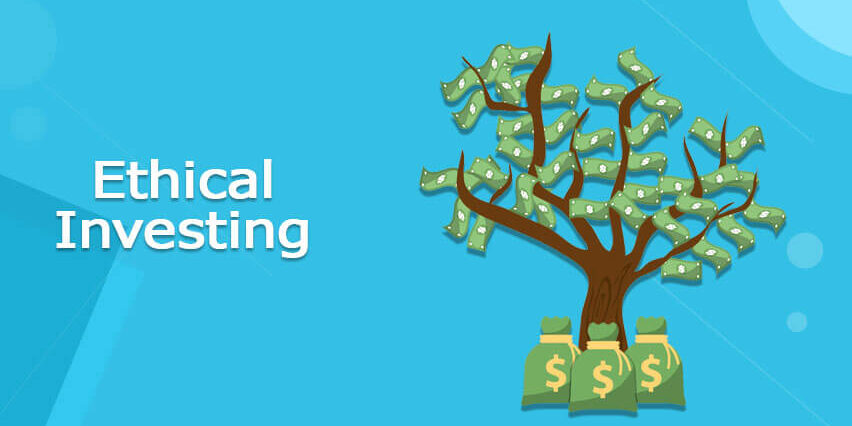In recent years, more investors—especially younger generations—are starting to ask deeper questions about where their money goes. It’s no longer just about returns, compounding, and beating the market. It’s about alignment. Does your money support industries you believe in? Does it avoid companies or practices you oppose? In other words, can you grow your wealth without compromising your values?
This is where ethical investing, also known as sustainable, ESG (Environmental, Social, Governance), or values-based investing, comes into play. It’s a growing movement, and it’s becoming more relevant in a world increasingly shaped by climate change, social justice debates, and governance scandals.
What Does It Mean to Invest Ethically?
Ethical investing means building a portfolio that reflects your personal principles—whether that’s environmental sustainability, human rights, gender equality, or animal welfare. It’s about putting your money to work in ways that don’t just aim for profit, but also contribute to a better world.
This can take various forms. Some investors avoid certain industries altogether—like tobacco, fossil fuels, or weapons manufacturers—while others actively seek out companies making positive change, like renewable energy firms or businesses with strong labor practices.
The rise of ESG metrics has given investors more tools to measure these factors. While not perfect, ESG scores aim to evaluate how well companies manage environmental risks, social impact, and governance standards. According to Morningstar, over 65% of European retail investors now consider ESG factors when choosing funds—a number that has grown steadily year after year.
Do Ethical Investments Actually Perform?
One of the main concerns for investors new to this space is whether aligning their portfolio with their values means sacrificing returns. But the data tells a more nuanced story.
Over the past decade, ESG-focused funds have generally performed in line with—or in some cases better than—their traditional counterparts. A 2023 report by MSCI showed that companies with high ESG ratings demonstrated lower volatility and stronger risk-adjusted returns over long periods.
For example, the MSCI World ESG Leaders Index returned an average of 9.5% annually over the past five years, compared to 8.9% for the standard MSCI World Index. These differences may seem small, but over time, they compound into meaningful performance gaps.
That said, short-term underperformance can happen—especially if sectors like energy (often excluded from ESG funds) are booming. Ethical investing is not about chasing the hottest returns in every quarter. It’s about sustainable, consistent, and values-aligned growth over time.
Building Your Own Ethical Portfolio
Creating an ethical investment portfolio doesn’t require a finance degree or a team of analysts. Many brokers and robo-advisors now offer ESG portfolios as default options. Platforms like Moneyfarm, Vanguard, iShares, and Amundi offer a range of ESG-compliant ETFs with low fees and global diversification.
Start by identifying what matters most to you. Are you focused on climate impact? Diversity in leadership? Anti-corruption? Once you know your priorities, you can begin researching funds or companies that reflect those ideals.
For example, if environmental impact is a concern, funds like the ETF globale sull'energia pulita di iShares (ICLN) o Lyxor New Energy UCITS ETF provide exposure to companies leading the transition to a low-carbon economy.
If you’re avoiding specific industries, look for funds labeled “ex-fossil fuel,” “sustainable,” or “socially responsible.” Most platforms now offer transparency on fund holdings and ESG ratings to help you make informed choices.
It’s also worth noting that impact investing—where you invest directly in companies or projects with measurable social or environmental goals—is growing rapidly. While often more complex and less liquid, it’s an exciting frontier for those looking to make a direct difference.
Aligning Wealth with Purpose
Investing ethically isn’t just about screening out what you don’t want. It’s about proactively supporting what you believe in. It’s a chance to make your money reflect your identity—not just your financial goals, but your personal mission.
And this matters. Studies show that investors who feel their portfolios align with their values are more likely to stick to their plans, weather market volatility, and stay invested for the long haul. That emotional alignment can be a powerful financial tool in itself.
At the same time, it’s important to approach ethical investing with realism. No portfolio is perfect. Even companies with high ESG scores may stumble. And data transparency is still evolving. But perfection shouldn’t be the enemy of progress.
Growing Your Values as You Grow Your Wealth
The idea that finance and ethics are separate worlds is outdated. Today, your investment portfolio can be a powerful expression of who you are and what you stand for. Whether you’re just starting with €50 a month or managing a larger account, it’s entirely possible to build a portfolio that reflects your values and delivers strong performance over time.
The real question is no longer “Can I afford to invest ethically?”—it’s “Can I afford not to?”

